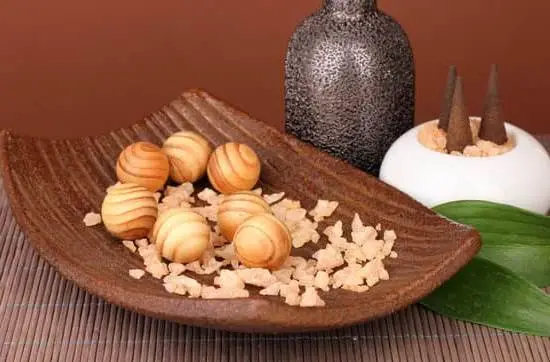What is a carrier oil in aromatherapy? Aromatherapy is a holistic healing treatment that uses natural plant extracts to promote health and well-being. Essential oils are the key players in aromatherapy, but they are often too potent to be used directly on the skin. This is where carrier oils come in. In this article, we will delve into the world of carrier oils in aromatherapy and understand their significance in enhancing the benefits of essential oils.
When it comes to utilizing essential oils in aromatherapy, carrier oils act as the perfect companion. They are naturally derived from the fatty portions of plants, such as seeds, nuts or kernels, and are used to dilute essential oils before applying them onto the skin. Carrier oils play a crucial role in helping essential oils spread evenly over the skin and prevent any potential skin irritation or sensitization that may occur with direct application of undiluted essential oils.
Moreover, carrier oils also possess their own therapeutic properties that complement those of essential oils. They can moisturize and nourish the skin, deliver vital nutrients, and even offer their own unique aroma for an enhanced olfactory experience.
Understanding the different types of carrier oils and their individual benefits is essential for creating effective aromatherapy blends that cater to specific health concerns or desired outcomes. Stay tuned as we unravel the world of carrier oils in aromatherapy and discover their incredible potential for holistic wellness.
Understanding Carrier Oils
In the world of aromatherapy, carrier oils are a crucial component that often takes a backseat to the more well-known essential oils. However, these unsung heroes play a vital role in the efficacy and safety of using essential oils. So, what exactly are carrier oils and why are they so essential in aromatherapy?
What Are Carrier Oils?
Carrier oils, also known as base oils or vegetable oils, are derived from the fatty portion of a plant, usually from the seeds, kernels or nuts. Unlike essential oils, carrier oils do not evaporate and have little to no fragrance. This makes them an ideal partner for diluting potent essential oils for use in aromatherapy.
Why Are Carrier Oils Essential in Aromatherapy?
One of the primary reasons carrier oils are essential in aromatherapy is their role in diluting and carrying essential oils onto the skin. Undiluted essential oils can be too potent for direct application to the skin and may cause irritation or sensitization. Carrier oils help reduce the concentration of essential oils while still allowing them to be effectively absorbed by the body. Additionally, carrier oils act as a protective layer on the skin, preventing moisture loss and providing nourishment.
The Importance of Choosing Quality Carrier Oils
When it comes to selecting carrier oils for aromatherapy, it’s crucial to choose high-quality, unadulterated options. Cold-pressed or expeller-pressed carrier oils retain their natural properties and are free from chemical solvents or synthetic additives.
Opting for organic carrier oils ensures that they are free from pesticides and other harmful chemicals, which is especially important when using them in conjunction with therapeutic-grade essential oils for health and wellness benefits. By understanding what carrier oils are and why they are indispensable in aromatherapy, individuals can make informed choices when incorporating them into their holistic wellness routines.
The Role of Carrier Oils in Aromatherapy
Carrier oils play a crucial role in aromatherapy by enhancing the benefits of essential oils. These oils are used to dilute and “carry” essential oils onto the skin, allowing for better absorption and reducing the risk of skin irritation.
Carrier oils also help to extend the shelf life of essential oils, as many essential oils can be highly volatile and may evaporate quickly when applied directly to the skin. By using carrier oils, individuals can experience the full therapeutic effects of essential oils in a safe and effective manner.
In addition to dilution, carrier oils also serve as a medium for blending different essential oils together. This allows for greater customization and versatility in aromatherapy treatments. The properties of carrier oils can also complement and enhance the properties of specific essential oils, creating a synergistic effect that maximizes their healing potential. For example, some carrier oils have moisturizing or anti-inflammatory properties that can enhance the soothing effects of essential oils when used in massage or skincare applications.
Furthermore, carrier oils provide nourishment and hydration to the skin, promoting overall wellness beyond just the aromatherapeutic benefits. When combined with essential oils, carrier oils can contribute to improved skin health and provide additional therapeutic benefits such as relaxation, stress relief, pain management, and immune support. With their ability to enhance the effectiveness of essential oils and promote holistic well-being, carrier oils are an indispensable element in aromatherapy practices.
Choosing the Right Carrier Oil
When it comes to choosing the right carrier oil for aromatherapy, it is essential to consider several factors that can impact the effectiveness and benefits of your essential oil blends. One important consideration is the skin type of the individual who will be using the aromatherapy blend.
Different carrier oils have different levels of viscosity and absorption rates, making some more suitable for dry skin while others are better for oily or sensitive skin types. For example, lighter oils like jojoba or grapeseed are often recommended for oily or acne-prone skin, while heavier oils like avocado or sweet almond are better suited for dry or mature skin.
Another factor to consider when choosing a carrier oil is its scent and color. While carrier oils should not have an overpowering scent, they do have their own subtle aroma which can influence the overall fragrance of your essential oil blend.
Additionally, some carrier oils may have a distinct color that can affect the appearance of your aromatherapy products. It’s important to choose a carrier oil with a scent and color that complements the essential oils you plan to use in your blends.
In addition to considering skin type and scent/color, it’s also important to take into account the therapeutic properties of different carrier oils. Some carrier oils have specific healing properties that can enhance the overall benefits of your aromatherapy blends.
For example, coconut oil is known for its moisturizing and anti-inflammatory properties, while rosehip oil is prized for its anti-aging and scar-reducing effects. By understanding the unique therapeutic properties of various carrier oils, you can tailor your aromatherapy blends to address specific wellness concerns.
Popular Carrier Oils in Aromatherapy
Coconut Oil
One of the most popular carrier oils used in aromatherapy is coconut oil. This versatile oil is known for its moisturizing properties, making it an ideal carrier for essential oils that are used for skin care. Coconut oil is also rich in antioxidants and has antibacterial and anti-inflammatory properties, making it a great choice for addressing various skin concerns such as acne, eczema, and dryness.
Jojoba Oil
Another commonly used carrier oil in aromatherapy is jojoba oil. This oil closely resembles the natural sebum produced by our skin, making it easily absorbed and well-tolerated by most skin types. Jojoba oil is often used in essential oil blends for skincare, hair care, and massage therapies. It also has anti-inflammatory effects and can help with managing conditions like psoriasis and sunburn.
Sweet Almond Oil
Sweet almond oil is another popular choice for a carrier oil in aromatherapy. It is lightweight and non-greasy, making it suitable for various applications such as massage oils, bath blends, and facial serums. Sweet almond oil is rich in vitamins E and A, which are beneficial for skin health and can help improve complexion and reduce the signs of aging.
These are just a few examples of popular carrier oils used in aromatherapy, each with its own unique properties and uses that enhance the therapeutic benefits of essential oils. When choosing a carrier oil for your aromatherapy blends, it’s important to consider your specific needs and preferences to find the best option for you.
Benefits of Using Carrier Oils With Essential Oils
Carrier oils play a crucial role in aromatherapy, as they not only enhance the benefits of essential oils but also offer their own healing and therapeutic effects. Here are some of the key benefits of using carrier oils with essential oils:
1. Dilution: One of the primary benefits of using carrier oils with essential oils is that they help to dilute the concentrated essential oils, making them safer for topical application. This is especially important for individuals with sensitive skin, as undiluted essential oils can potentially cause irritation or adverse reactions.
2. Skin Nourishment: Carrier oils are rich in vitamins, minerals, and fatty acids that nourish and moisturize the skin. When combined with essential oils, they create a synergistic blend that not only delivers the therapeutic properties of the essential oils but also provides added skincare benefits.
3. Slow Absorption: Carrier oils have a slower absorption rate than essential oils, which allows for a longer-lasting effect when used topically. This slow absorption also helps to prolong the evaporation of the volatile essential oils, extending their aromatic presence and therapeutic benefits.
Incorporating carrier oils into your aromatherapy practice can significantly enhance the overall experience and effectiveness of using essential oils for holistic wellness and self-care.
By understanding the unique characteristics and benefits of different carrier oils, you can tailor your aromatherapy blends to address specific health concerns or simply indulge in their luxurious skincare properties.
How to Use Carrier Oils in Aromatherapy
When using carrier oils in aromatherapy, it is essential to follow best practices and safety precautions to ensure a positive and safe experience. One of the primary best practices in using carrier oils is to dilute essential oils properly. Carrier oils help dilute essential oils, reducing the risk of skin irritation or sensitization. The general rule of thumb is to use a 2% dilution, which means adding 12 drops of essential oil to 1 ounce (30 mL) of carrier oil.
In addition to proper dilution, it is important to perform a patch test before using any new carrier oil or essential oil. This involves applying a small amount of diluted oil to a patch of skin and waiting for 24 hours to check for any adverse reactions. By conducting a patch test, you can ensure that you do not have an allergic reaction to the specific oil being used.
Another best practice when using carrier oils in aromatherapy is proper storage and handling. Carrier oils should be stored in dark-colored glass bottles in a cool, dark place away from direct sunlight and heat. This helps prevent oxidation and extends the shelf life of the carrier oil, ensuring its efficacy when used in aromatherapy blends.
Lastly, understanding the individual properties and characteristics of carrier oils is crucial for effective use in aromatherapy. Some carrier oils have a shorter shelf life and are more prone to oxidation, while others are better suited for specific skin types or therapeutic purposes. Being knowledgeable about these factors helps in choosing the right carrier oil for different aromatherapy applications.
| Best Practices | Safety Precautions |
|---|---|
| Properly dilute essential oils | Conduct patch tests before use |
| Store carrier oils in dark-colored glass bottles | Avoid direct sunlight and heat exposure |
| Understand individual properties of carrier oils | Choose based on skin type and therapeutic purpose |
DIY Aromatherapy Blends
When it comes to creating your own aromatherapy blends, the possibilities are endless. By combining different essential oils with carrier oils, you can customize your own unique blends to address specific wellness goals or simply create a scent that resonates with you. Here are some tips for crafting your own DIY aromatherapy blends:
- Start by understanding the properties and benefits of different essential oils. Each essential oil has its own therapeutic properties, so it’s important to research and understand how they can support your overall well-being.
- Consider the desired effect of your blend. Whether you’re looking for relaxation, an energy boost, or relief from specific symptoms, choosing essential oils that align with your goals is key.
- Experiment with different combinations. Once you have a good grasp of the properties of essential oils, try experimenting with different combinations to find a blend that suits your needs.
Creating your own DIY aromatherapy blends can be a fun and rewarding experience. Not only do you have the opportunity to personalize scents that resonate with you, but you also get to enjoy the therapeutic benefits of the essential oils and carrier oils that you choose.
Remember to always dilute essential oils in carrier oils before applying them to the skin, as undiluted essential oils can cause irritation or sensitization. Additionally, it’s important to perform a patch test before using any new blend to ensure that you don’t have any adverse reactions.
By taking the time to craft your own unique combinations of essential oils and carrier oils, you can truly harness the power of aromatherapy and enjoy a more personalized wellness experience.
Conclusion
In conclusion, carrier oils play a crucial role in the practice of aromatherapy and significantly contribute to enhancing the overall wellness of individuals. By serving as a vehicle for essential oils, carrier oils help to dilute and disperse the potent properties of essential oils, making them safe for topical application or inhalation. Furthermore, the unique healing and therapeutic benefits of carrier oils themselves add an extra layer of nourishment and therapeutic effects when combined with essential oils.
The use of carrier oils in aromatherapy not only provides a medium for safely applying essential oils but also offers additional skincare benefits. Many carrier oils possess moisturizing, anti-inflammatory, and antioxidant properties that can effectively nourish and rejuvenate the skin. This dual function allows individuals to experience both the aromatic benefits of essential oils and the nurturing effects of carrier oils.
Overall, it is important to recognize the indispensable role that carrier oils play in enhancing the efficacy and safety of aromatherapy practices. Whether used for massage, skincare, or emotional support, the proper selection and utilization of carrier oils can greatly impact one’s overall well-being. Therefore, incorporating carrier oils into one’s aromatherapy routine can lead to a more holistic approach to health and wellness.
Frequently Asked Questions
What Is the Carrier Oil in Fragrance Oils?
The carrier oil in fragrance oils is the base oil used to dilute the concentrated fragrance. Common carrier oils include jojoba oil, almond oil, and grapeseed oil. These carrier oils help to make the fragrance more skin-friendly and easier to apply.
Why Are Carrier Oils Used in an Aromatherapy Massage?
Carrier oils are used in aromatherapy massage because they help to dilute the essential oils, making them safe for direct skin contact. Additionally, carrier oils have their own beneficial properties that can enhance the effects of the essential oils during the massage, providing a more holistic experience.
Is Baby Oil a Carrier Oil for Diffuser?
While baby oil can technically be used as a carrier oil for a diffuser, it is not commonly recommended due to its petroleum-based ingredients and added fragrances. Instead, it is better to use natural plant-based carrier oils such as coconut oil or sweet almond oil to diffuse essential oils safely and effectively.

Are you looking for a natural way to improve your health and wellbeing?
If so, aromatherapy may be the answer for you.





